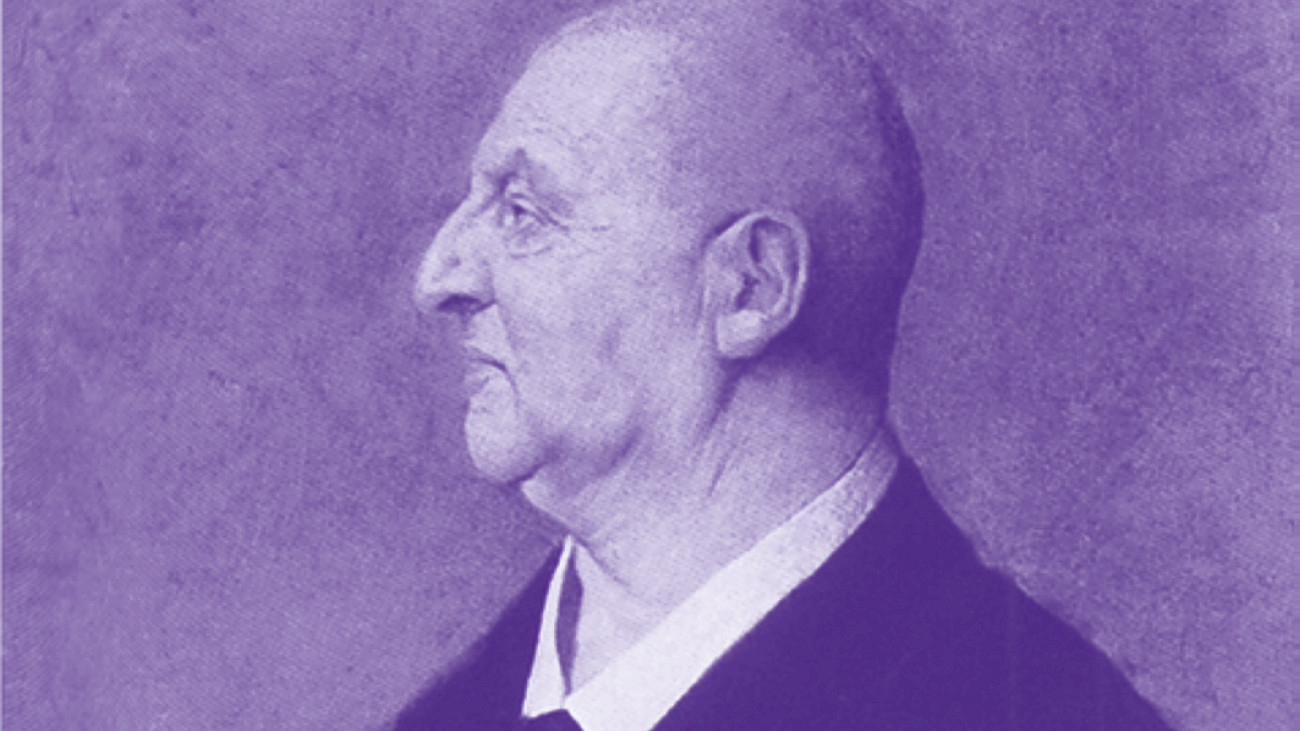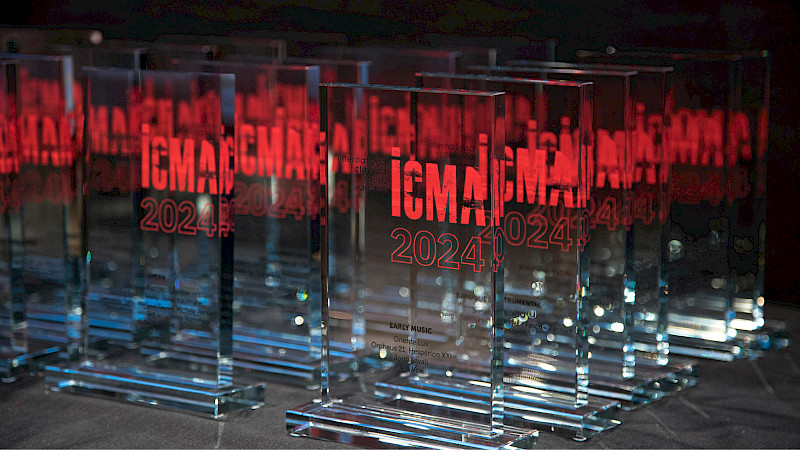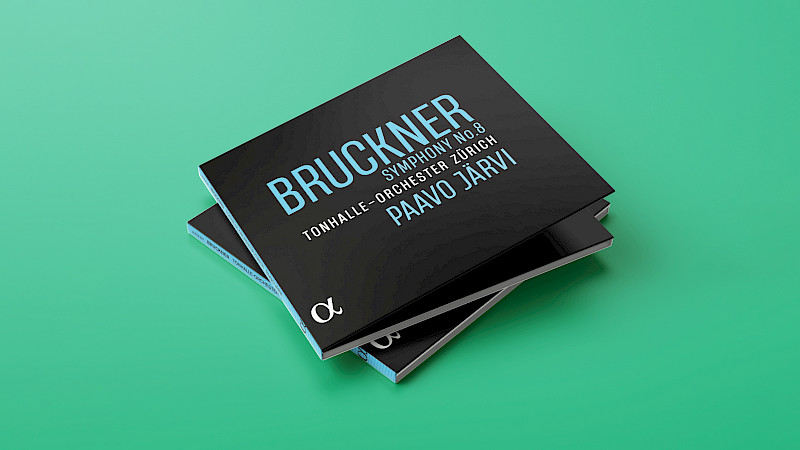
Nine Facts about Bruckner's Unfinished Symphony
Anton Bruckner had a hard time as a composer – especially in Vienna, where he lived from 1868. It was not until his Seventh Symphony that he achieved an international breakthrough, and his Eighth was also very well received. But he could not enjoy his success for long: Bruckner died on 11 October 1896, before his Ninth Symphony was completely finished. Here we present nine facts about the work that reveal a lot about the composer's character.
1. The "Unfinished" did not really remain "unfinished".
Bruckner found it quite difficult to complete the symphony, which he had already begun in 1887, so that he was unable to finish it. Legend has it that he was still working on it on the day of his death. This is why the symphony was given the nickname "Unfinished" and went down in concert programmes and history books as such. Today we know that this designation is not entirely correct: apparently Bruckner composed the framework of the last movement without gaps from beginning to end, only the orchestration could not be fully worked out. In other words: the symphony existed so completely at the time of his death that a performable version could probably easily have been created. So what happened? Bruckner's students Ferdinand Löwe and Franz Schalk apparently gave away and sold pages from the Finale of the Ninth. Through this negligent (if not criminal) behaviour, they contributed to the loss of manuscript pages and the movement surviving only as a fragment with gaps.
2. About 20 versions of the finale exist.
Bruckner wrote his Ninth Symphony in a premonition of death, which is why he himself determined what should happen if he did not finish it. In his last lecture at the Vienna Conservatory on 12 November 1894, he said: "Should I die before completing the symphony, my Te Deum must then be used as the 4th movement of this symphony. I have already determined and arranged it so." With this knowledge and the surviving drafts and sketches, some 20 musicians have attempted reconstructions or use of the "Te Deum" since Bruckner's death.
3. Bruckner wanted to dedicate this work "to the dear God".
Bruckner was deeply influenced by the Catholic Church throughout his life: As a child he was a choirboy at St. Florian Abbey, where he then became abbey organist. Later he worked as cathedral organist in Linz. He prayed regularly, bowed when he passed churches and spent a lot of time inside the places of worship. Testimonies to his religiousness are his numerous sacred works – and his Ninth Symphony. The latter bears a special dedication. Bruckner told his doctor Dr. Richard Heller: "You see, I have already dedicated symphonies to two earthly majesties, to poor King Ludwig [the Seventh] and to our illustrious Emperor [the Eighth], as the highest earthly majesty I recognise, and now I dedicate my last work to the majesty of all majesties, the dear God, and hope that he will grant me as much time as possible to complete it, and will hopefully receive my gift graciously."
4. The Ninth is not the Ninth at all.
Bruckner actually wrote more than nine symphonies. If one were to count his works in this genre according to their chronological genesis – and take into account his "ninth" of 1869 and the F minor Symphony of 1863, which was discarded as a "school work" – the work would not be Bruckner's ninth symphony, but his eleventh.
5. The term "ninth symphony" frightened Bruckner.
Bruckner suffered from numerous compulsive neuroses and spleens. These included a compulsion to count. In addition, the superstitious composer was highly susceptible to number mysticism. Naturally, the number nine triggered a paralysing fear in him: As a potentised three, the number is a symbol of perfection, and is moreover associated in the Christian tradition with the Passion story, with Jesus' death at the ninth hour. But Bruckner was not alone in his unease about writing a "Ninth Symphony": many composers at the time shied away from writing a symphony with the ordinal number, or even from a work of this genre. This was due to reverence for Ludwig van Beethoven, whose Symphony No. 9 was considered the measure of all things.
6. The work is in the composer's "favourite key".
Bruckner decided to write his Ninth Symphony in the key of D minor. In doing so, however, he was really treading on slippery ground: Beethoven's Ninth is also in this key. Bruckner found it "majestic", "solemn" and "mysterious" and – despite all the talk – stuck to it for his last symphony. He said: "I'll have to measure myself against Beethoven! In D minor, yes, because it is such a beautiful key, but with a chorus like Beethoven's – well, Bruckner is that stupid. It's not my fault that I fell for the main theme in D minor; it's just my favourite key; if I had grown so fond of this theme, I would have liked to throw it away! In total, three of his symphonies are in D minor. In addition to the Ninth, these are his so-called "Zeroth" and the Third.
7. In this symphony, Bruckner's enthusiasm for Wagner is evident..
There are numerous anecdotes about Bruckner's almost submissive veneration for Richard Wagner. He worshipped him so much that meetings between Bruckner and Wagner could sometimes become unpleasant for the latter. Bruckner also gave musical expression to his reverence for the "master": he dedicated his third symphony to Wagner, and with the Adagio in his seventh he composed a tranquil lament after Wagner's death "in memory of my unattainable ideal in that bitter time of mourning". Bruckner used the so-called "Wagner tubas" – the instruments Wagner designed especially for the "Ring of the Nibelung". He also used these in the third movement of his Ninth: At the beginning and end of the Adagio, Bruckner calls for no fewer than four Wagner tubas.
8. ... and his talent as an organ virtuoso.
As difficult as he had it as a composer, Bruckner was always appreciated as a teacher (of music theory at the Vienna Conservatory, for example) and as an internationally renowned organ virtuoso. He was particularly famous for his improvisations. During these improvisations, he is said to have come up with many of the themes he used in his symphonies - including his Ninth. Bruckner used the orchestra like his instrument. He thought in the categories of organ registration, as is clear, for example, from the use of terrace dynamics. This led to the composition also functioning on the organ; today, two arrangements for solo organ exist.
9. The original version was not premiered until 36 years after Bruckner's death.
On 2 April 1932, the Munich Philharmonic, conducted by Siegmund von Hausegger, gave the first performance of Bruckner's Ninth Symphony in the form in which the composer had left it. In the concert, Hausegger contrasted Bruckner's original version with the 1903 version edited by Ferdinand Löwe: a revelation for the audience. Since then, it has usually been performed in three movements only - as it will be at the concert of the Tonhalle-Orchester Zürich with Kent Nagano in March 2023.
Translated with DeepL.com





